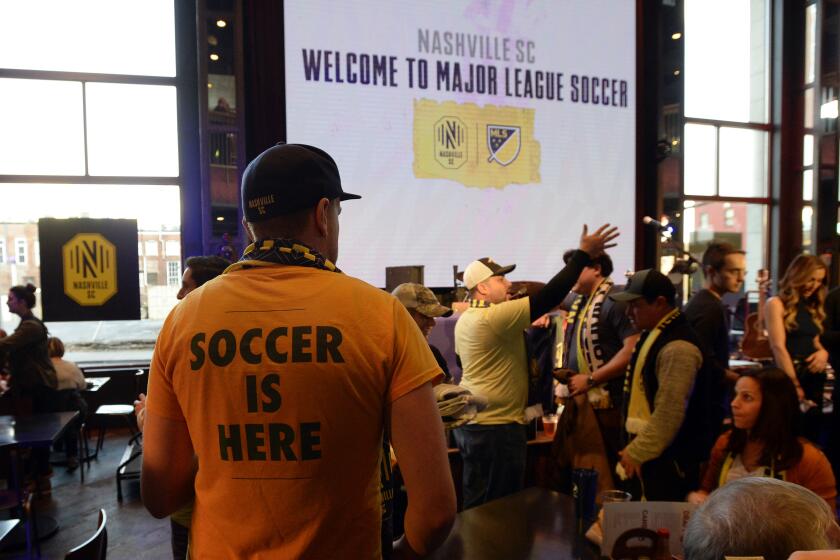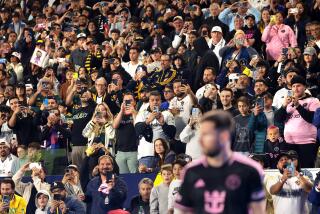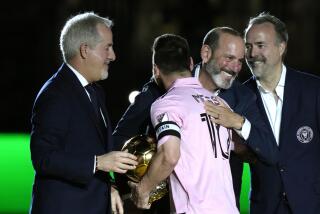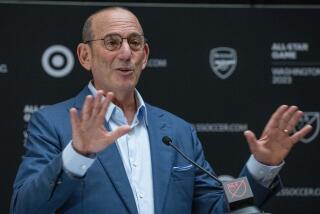Column: MLS Is Back but should it be during a surge of COVID-19 cases in the U.S.?
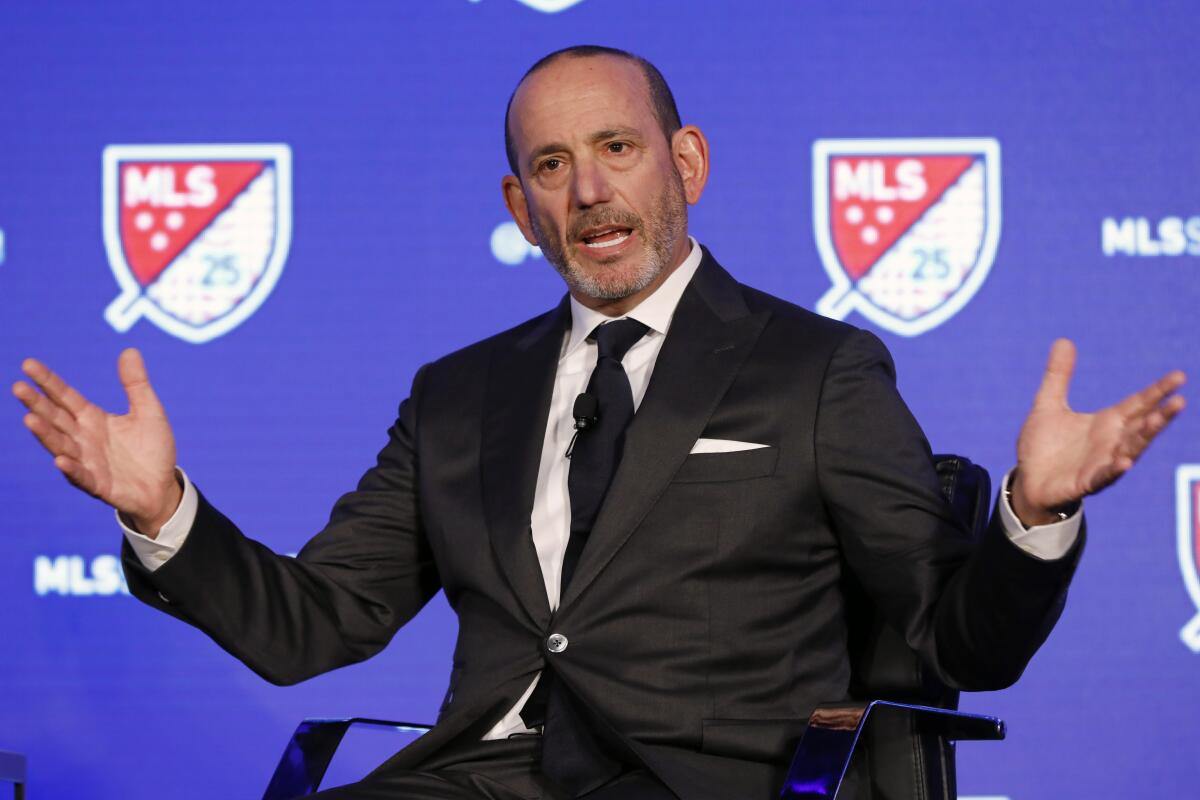
- Share via
ORLANDO, Fla. — Major League Soccer is calling its return-to-play tournament MLS Is Back, and the league intends to make good on its pledge Wednesday when Orlando City and Inter Miami meet without fans in attendance at ESPN’s Wide World of Sports complex near Orlando, Fla.
It will be the first competitive game played by men’s professional teams in the U.S. since the COVID-19 pandemic shut down much of the country in early March. But MLS is limping into its restart amid questions over whether it should be trying to play.
In the last two days the league has had one team, FC Dallas, withdraw from the tournament after 10 players tested positive for COVID-19 and another, Nashville SC, which was scheduled to play in the second game of Wednesday’s opening-night doubleheader, postponed that appearance when five players tested positive.
Four more Nashville players received inconclusive test results and the league said it would continue to evaluate the team’s participation in the tournament.
The MLS Is Back tournament received another blow Tuesday when five Nashville players received confirmation of positive coronavirus tests.
Vancouver left three starters home for COVID-related reasons; LAFC is without Carlos Vela, the league’s best player and biggest draw, because he chose to stay home with his pregnant wife; and at least five teams had their travel delayed by testing concerns, forcing the postponement of another opening-round match.
Also, Inter Miami’s Robbie Robinson, the top pick in last winter’s MLS SuperDraft, left the team hotel Monday, two days before the first game, for personal reasons.
Yet with all that, MLS Commissioner Don Garber has chosen to forge ahead.
“If there is a situation at any time that I believe that the protocols aren’t working, and the health and safety of our players is at risk, then I will make the decision to shut down the tournament,” he told the Associated Press. “That is something I committed to the players and to our entire league early on. But this is proving that our protocols worked and our plan so far has been sound.”
When MLS suspended play on March 12, 1,323 Americans had been diagnosed with the virus and 38 people had died. When the league resumes play Wednesday, it will do so with nearly twice as many Americans testing positive for COVID-19 every hour and the country averaging 12 times as many deaths per day as it had total on March 12.
Even so, there seems to be a general willingness to go back to action.
“We’re excited to play games,” LAFC coach Bob Bradley said, adding “Yes, there are concerns. We’ve had some cases of COVID that are very close to our team. So we don’t just think of ourselves in this moment.”
Said Philadelphia Union coach Jim Curtin: “In the back of everyone’s head, as human beings, there is a little bit of concern. The league has followed every safety protocol possible and made us as safe as possible. They are doing everything they can to get this tournament underway.”
When the tournament was announced last month, Garber, who estimated the league could lose as much as $1 billion to the COVID-19 shutdown, said it was important to corporate partners to get its teams back in front of fans as soon as possible. And his health and safety plan looked solid at the time: Players and staff from all 26 MLS teams would be repeatedly tested before traveling to Orlando, tested again on arrival, then housed in a protective quarantine where they would be required to wear face masks, practice social distancing and undergo further testing every other day.
The problem, said Armand Dorian, chief medical officer at USC Verdugo Hills Hospital, is that the protective bubble was stretched too thin. Rather than dividing the teams up and assigning them to separate hubs, as the NHL will do, MLS put all its teams — more than 1,300 people in all — in one resort complex in central Florida.
“A thousand people is too large to be able to manage considering, when you add on top of all of this, where we are currently in the United States,” Dorian said. “This thing is on the rise so the potential for exposure is only growing.”
Eighteen players have tested positive since entering the quarantine.
“If I see another four or five positive tests on other teams, yeah I’m getting into canceling territory,” said Zachary Binney, an epidemiologist at Oxford College of Emory University.
“It’s salvageable,” Dorian added, “but you have to create a new bubble, you have to create a new entry point. Once you’ve walked into the house with muddy shoes, there’s muddy shoes in the house. So you have to go back, clean the house and then ask people to start from the beginning and come back in again.”
With MLS committed to kicking off the competition Wednesday night, there’s no time for that.
Dorian agrees with Garber that there is great value in the return of MLS and other leagues. The novel coronavirus isn’t going away any time soon and having sports as a distraction, even if it’s only on TV, is one step toward a return to normalcy.
Others worry that it still may be too soon to return to fun and games.
“It seems premature to be starting up sports again given the rates of infection that are spiraling out of control right now,” said Dr. Anne W. Rimoin, a professor of epidemiology at UCLA and director of the school’s Center for Global and Immigrant Health.
“The league is gambling with the player’s health in this instance. We are still far from adequate testing, vaccines or therapeutics. Furthermore, there is mounting evidence of long-term sequelae that could occur even from more mild infections. Right now we are still learning about this disease.”

